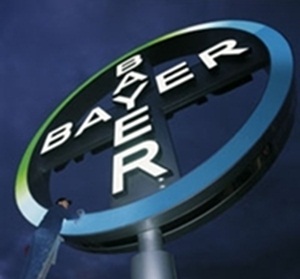German agro-chemicals giant Bayer AG plans to complete the acquisition of Monsanto on 7 June, becoming its sole shareholder in a blockbuster $66-billion deal.

Accordingly, Bayer will remain the name of the merged entity, with Monsanto's name fading away. The acquired products will retain their brand names and become part of the Bayer portfolio.
The combined business will benefit from Monsanto’s leadership in seeds and traits and Climate Corporation platform along with Bayer’s broad crop protection product line across a comprehensive range of indications and crops in all key geographies.
Together, the combined companies will have leading innovation capabilities and R&D technology platforms, with an annual pro-forma R&D budget of approximately €2.5 billion.
“The acquisition of Monsanto is a strategic milestone in strengthening our portfolio of leading businesses in health and nutrition," said Werner Baumann, chairman of the board of management of Bayer AG.
"We will double the size of our agriculture business and create a leading innovation engine in agriculture, positioning us to better serve our customers and unlock the long-term growth potential in the sector.”
Bayer announced its intention to acquire Monsanto in May 2016 and signed an agreement with the US company for $128-per share in September 2016. Currently that corresponds to a total cost of approximately $63 billion taking into account Monsanto’s debt outstanding as of 28 February 2018.
In order to allay regulatory concerns, Bayer agreed to the divestiture of certain businesses, which generated €2.2 billion in sales in 2017 for an aggregate base purchase price of €7.6 billion.
Including Monsanto and taking the divestitures into account, the health and agriculture businesses would have been roughly equal in size in 2017, with total pro forma sales of around €45 billion including combined Crop Science sales of around €20 billion.
In 2017, both companies together employed approximately 115,000 people, accounting for the divestments.
The acquisition is anticipated to generate significant value. Bayer expects a positive contribution to core earnings per share starting in 2019. From 2021 onward, that contribution is expected to be double-digit percentage.
Moreover, adjusted for divestments, Bayer expects synergies to deliver annual contributions of $1.2 billion to EBITDA before special items as of 2022.
In order to acquire Monsanto, Bayer secured initial bridge financing of $57 billion US dollars, and refinanced by a combination of equity and debt, some of which have already been completed. The final equity measure will be a rights issue.
According to the conditional approval from the United States Department of Justice, the integration of Monsanto into Bayer can take place as soon as the divestments to BASF have been completed.
This is expected to be in approximately two months. “We have diligently prepared for the upcoming integration over the past two years. Our extensive experience in integrating other large companies has proven that we can and will be successful,” said Baumann.
“Innovation is vital to produce more healthy, safe and affordable food for a growing population in a more sustainable manner. The combination of the two businesses will allow us to deliver more innovation faster and provide solutions tailored to the needs of farmers around the world,” said Liam Condon, Bayer Board Member and President of the Crop Science Division. “Going forward, our teams in the labs and in the field will be able to take a much more holistic approach to innovation as we address the enormous challenges we face in agriculture.”
Including Monsanto and taking the divestitures into account, the total R&D investment of Bayer in 2017 would have been around 5.7 billion euros. Of that, 2.4 billion euros would have been spent in the combined agriculture business on a pro forma basis.
Strengthened commitment to sustainability and responsibility
Bayer is fully aware of the heightened responsibility that a leadership position in agriculture entails. The company will continue to further strengthen its commitment in the area of sustainability. As a leader, Bayer is fully committed to upholding the highest ethical and responsibility standards, strengthening access to health and nutrition, and further reducing its environmental footprint. “We will apply the same rigor to achieving our sustainability targets as we do to our financial targets,” said Baumann.
Bayer is also committed to further enhancing stakeholder engagement. Baumann said: “We aim to deepen our dialogue with society. We will listen to our critics and work together where we find common ground. Agriculture is too important to allow ideological differences to bring progress to a standstill. We have to talk to each other. We need to listen to each other. It’s the only way to build bridges.”










